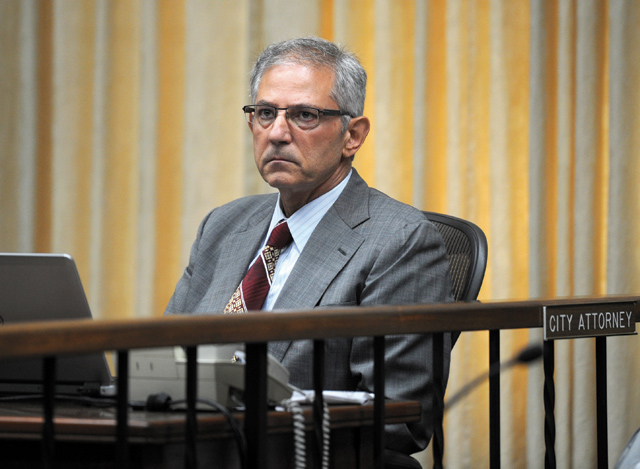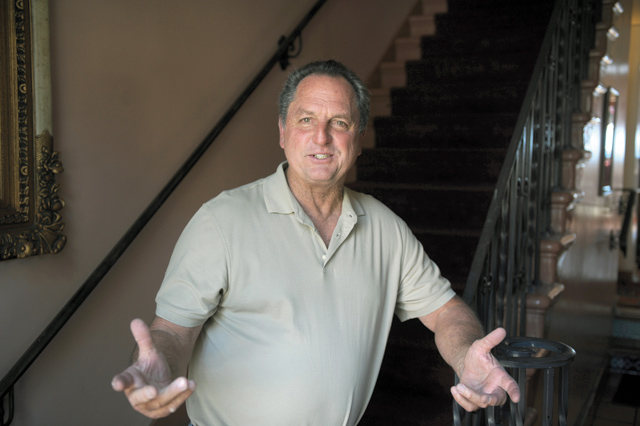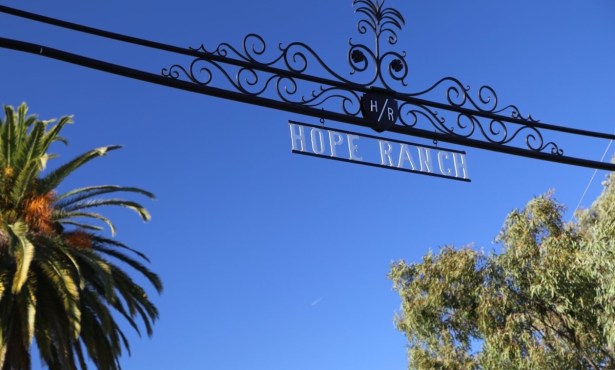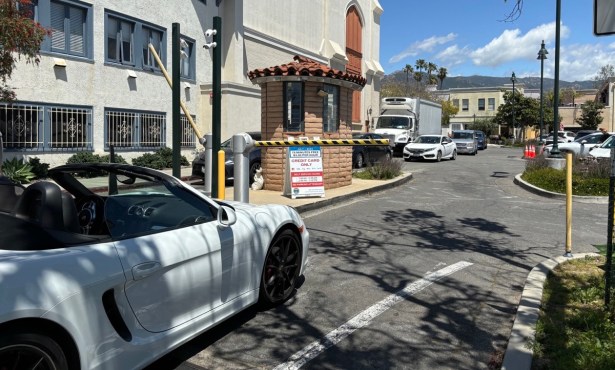City Lowers Boom on Landlord Dario Pini
Launches Police-Escorted Inspections of 164 Rental Units

Armed with inspection warrants authorizing the use of force, a team of about 20 inspectors from five City Hall departments, including police, launched a sweep of landlord Dario Pini’s rental properties early Tuesday morning in search of living conditions so unsafe they’d persuade a judge to put them in the hands of a court-ordered receiver. Such a receiver would be authorized to collect rents and to borrow money using Pini’s properties as collateral in order to generate the funds to make the repairs City Hall insists are necessary.
City Attorney Ariel Calonne said the special inspections of 164 units became necessary after years of court-ordered code-compliance sessions between Pini and Special Master (an ad hoc officer of the court) Stan Roden failed to achieve habitability improvements. One of the largest landlords in Santa Barbara County, Pini — famous for renting to low-income and immigrant tenants — has long been the focus of intense enforcement actions. According to City Hall, he packs far more tenants into his properties than the places can reasonably accommodate, creating unsafe living conditions for his renters and blight for his neighbors. “We are no longer content to rely on Mr. Pini’s promises to clean up his properties,” Calonne said. “Given his track record, he no longer warrants such trust.”
Pini protested all his properties are up to code and that he’s responded to every notice of violation by making the required repairs. “This is communistic,” he declared. “This is communism masquerading under the guise of democracy.” Pini said city residents would be better served if the enforcement energies of City Hall were focused on “all the heroin washing through town.”
Pini said he first learned of the raids when a tenant at 320 West Mission Street called, upset that someone was drilling the lock off his door. “You know what they found?” Pini asked. “They found a sink in a room that wasn’t supposed to be there. This is totally absurd.” In response, Calonne replied: “It’s not appropriate for me to comment on why Mr. Pini cannot see unsafe and unhealthful living conditions on his properties, but what we discover will shock the conscience of this community.”

Pini objected such methods were excessive and that he’d voluntarily make all his properties available to city inspectors. Calonne stated extraordinary measures were necessary because in previous visits, inspectors discovered Pini had either moved tenants out of illegally subdivided apartments or made temporary interior changes. “It’s been a game of cat and mouse,” Calonne said. In addition, Calonne expressed concern for the safety of those conducting the inspections, citing the criminal histories of some of Pini’s tenants.
Calonne said no resistance was encountered. Spanish-language translators were dispatched to assure tenants the inspectors meant them no harm. “The tenants have welcomed us so far,” he said. “In fact, they’ve been quite grateful we are doing this.”
Calonne stated tenants would be displaced if the inspections demonstrated the premises posed a threat to their physical safety. If that happens, he added, Pini has a legal obligation to shoulder the costs of relocating them. If Pini fails to do so, he said, City Hall has already secured alternative housing.
Pini and his attorney, Larry Powell, expressed dismay and surprise at the city’s action. Powell stated Pini had always responded to the city’s many notices of violation, though he acknowledged Pini did not always act in accordance to City Hall’s deadlines. Pini said he had 20-30 workers responding to such complaints but added that he’s currently “in the middle of some big projects.”
Although receivership actions are not uncommon weapons deployed by municipal governments against slumlords, Calonne said he has no recollection of Santa Barbara pursuing such a legal effort before. Powell said his client has never been the target of one. To prevail, Powell said City Hall must demonstrate in court that Pini has not made necessary repairs and that this inaction puts his tenants at risk.
Although Calonne never put Pini on official notice, he said the warning signs were there. On June 21, he asked the City Council’s approval to spend $65,000 to hire a legal specialist in receivership actions. Although Pini’s name was not mentioned, the fine print alluded to “dilapidated and dangerous conditions,” citing “structural hazards, improper wiring and plumbing, accumulation of vegetation, junk, garbage or conditions that constitute health and safety hazards.” As of Wednesday morning, Calonne said city inspectors had 77 more units to view. He said the warrants give the city 14 days to complete their task.



